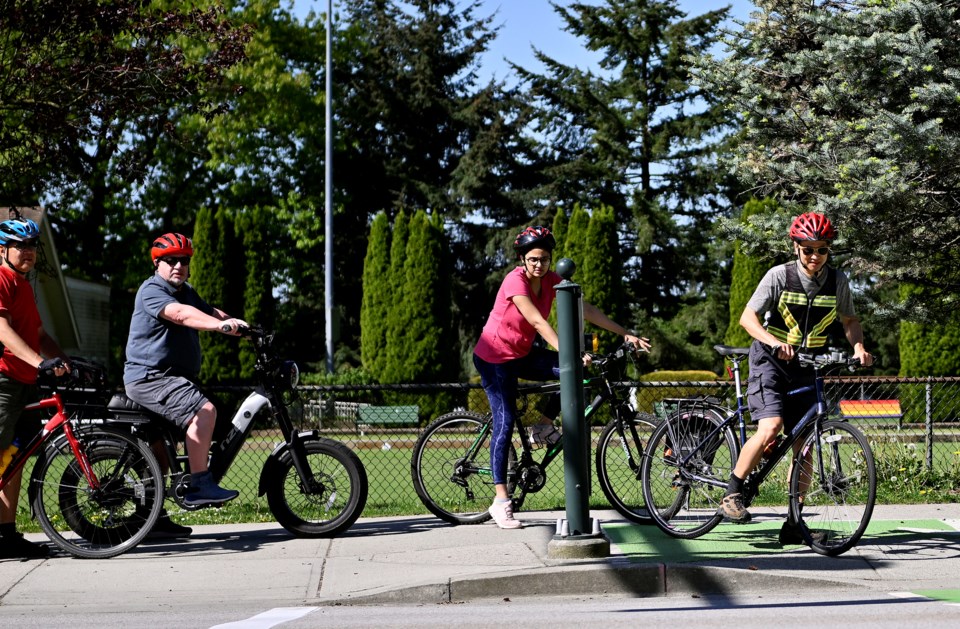The Editor:
Re: Road trip? New West councillor wants to take a trek to PoCo (Feb. 4, 2024)
There's no need to consult with Port Coquitlam.
I moved to New Westminster and away from the Tri-Cities because New West put people first, and had been prioritizing livable and walkable neighbourhoods.
When I arrived here I was instantly at home!
I could take my kids to get groceries and bike them to school without having to dodge people in huge vehicles swearing and screaming abuse at us because we dared to be legally using the road or a crosswalk.
My whole family and many of my friends prefer to use alternative transport. I personally only learned to drive at 26 and never owned a car until I was in my 40s, while my younger son (22) and husband (47) are still working on their driving licenses.
While we do have a vehicle, our car sits in its stall six our of seven days a week — and this is why we moved to New West. It was frustrating living in Coquitlam and Port Coquitlam because they have little to no cycling infrastructure, and transit is painful if you want to go anywhere other than a major hub.
While New West is significantly better, council is fully aware that we still have a lot of work to do to make our roads safer for all users.
When I bike to work in Coquitlam right now, one third of my route is delightful because it is on the Central Valley Greenway.
Sadly, the rest of my trip can be quite challenging, as there are still many areas where no proper infrastructure has been provided: none at all in Coquitlam and there are significant gaps locally. Even when those gaps are just a few blocks, they are barriers to all but the most dedicated cyclists — and, let's be fair, we all know no one would drive if the roads only existed for up to 70 per cent of the journey and you were supposed to just "figure it out" for the rest.
We spend billions on extending roads, parking and bridges. It's not unreasonable to expect a decent fraction of my taxes also go to bike lanes that promote accessibility for all (because they are also used by mobility devices, scooters and who knows what else as we see the rapidly increasing options available).
Every study done shows that investing in separated bike lanes is good for the entire community: it makes travel safer (even for car drivers!) and more affordable, has positive health and wellness impacts and to top it off it usually is helpful to local businesses, or at worst has a neutral effect.
It is imperative that we continue to expand alternative transportation routes so that everyone has a safe route to the places they need to get to.
Tax hikes are never going to be popular, but austerity budgets have always resulted in losses and creates long term problems that cost a lot to repair, that is if the damage is not irreparable.
The Dutch invest 595 million euros annually in urban biking and they save 19 billion in heath care costs.
This is how to do the math on investing in our city. Prevention is always cheaper, it save lives and it builds community. Wins for all.
- Maureen Curran, New Westminster



